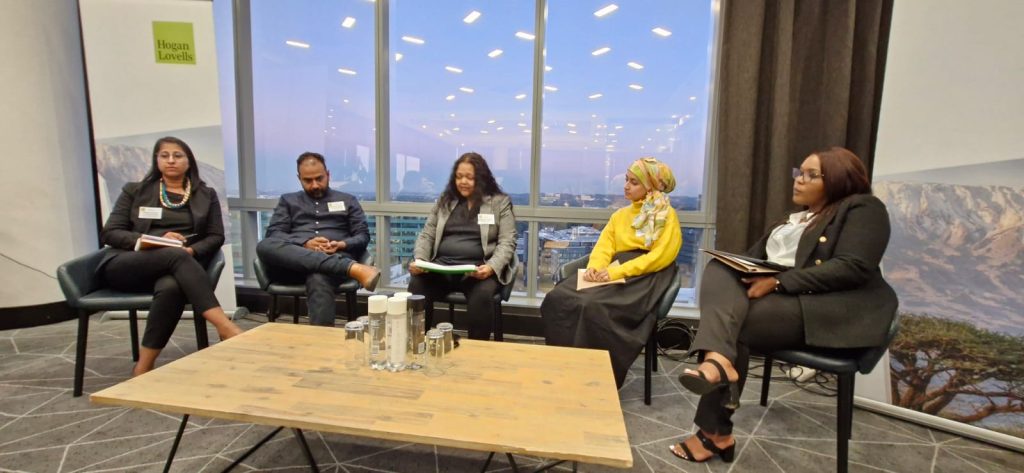Did you know that 61% of children in South Africa are developmentally behind or at risk due to malnutrition and poor stimulation? In addition, more than 50% of Early Childhood Development (ECD) centres are unable to access the government subsidy and operate from poor facilities with minimum resources. Unfortunately, only 46% of 4–5-year-olds in early learning centres across the country are on track for early learning by the time they start Grade R.
For the past fourteen years, Impande, a non-profit organisation, has been working with grassroots organisations in marginalised communities in South Africa, with a keen focus on ECD. The organisation currently operates in all four municipalities in UGU District and Ubuhlebezwe and uMzimkhulu Municipalities in Harry Gwala District, KwaZulu-Natal, as well as Ntabankulu, Umzimvubu, and Winnie-Madikizela Mandela Municipalities in Alfred Nzo District, Eastern Cape.
In KwaZulu-Natal, the Early Childhood Development sector faces numerous challenges, including inadequate infrastructure, lack of resources, and limited access to quality ECD programmes. The Department of Social Development in KwaZulu-Natal, reports that only 30% of children aged 0-4 years have access to ECD services. The picture is also bleak in the Eastern Cape, where the ECD sector faces similar challenges. According to a report by the Department of Social Development in the Eastern Cape, only 25% of children aged 0-4 years have access to ECD services.
Despite government prioritising the support of ECD, subsidies and resources are still not reaching marginalised communities because most of the centres operating in these areas are unregistered, making them effectively invisible.
Brian Lingett, Director at Impande says, “Operating in KwaZulu-Natal and the Eastern Cape is driven by the urgent need for intervention in the ECD sector in these provinces. By working with grassroots organisations in these communities, we aim to improve the quality of ECD programs and ensure that more children have access to them, laying the foundation for their future success in life”.
What sets Impande apart from other organisations is the level of data they collect and transform into actionable initiatives and subsequent results with the help of ECD centres. Field workers collect ECD data through the Impande CommCareApp and their case management system allows for the application of an algorithm that produces investment shortlists.
Leveraging the power of this technology has to date allowed Impande and its affiliates to support 62,583 children at 1,876 ECD centres and provide more than 1 million meals annually. They have also seen 295 classrooms built, allowed for 221 centres to access funding, and support 1,165 teachers with a basic income through the Small Enterprise Foundation (SEF).
Impande works work closely with public, civil, and private sector stakeholders to drive investment in grassroots ECD. All their work is grounded in a solid ECD network to ensure community participation and effective resource allocation ensuring their holistic approach to ECD.
Hogan Lovells recently hosted an event which brought together key civil and private stakeholders to address critical issues such as systemic marginalisation and dire poverty, which are contributing factors to children’s development in South Africa. Deepa Vallabh partner at Hogan Lovells said, “the importance of what Impande does and the generational impact of their work cannot be underestimated in the context of South Africa. Intervention at the right time in a child’s development makes all the difference in their ability to succeed and gives them the best chance for a better future. I believe that as corporate South Africa we can play a pivotal role by supporting organisations like Impande and help create stronger foundations for our future talent”.
“Hogan Lovells have been providing pro-bono legal work and advice to us now for the last few years which has been a huge help to us as we grow. We look forward to continuing to collaborate closely with them to drive shared value to improve the lives of young children and women in South Africa and shape the future of the country” adds Lingett.

We understand that there are many aspects that encompass a Mother, Father or Child and strive toward providing resources and services that accommodates this.
Our content is aimed to inform and educate families on issues starting from pregnancy through to the challenges of the teen-age years.
- Say Hello to the Ultimate Holiday Brunch Bite - December 17, 2025
- Tiny Toons Looniversity Returns: Meet the Voice Behind Plucky and Hamton! - December 12, 2025
- From Pain to Possibility: Panado®’s New Marketing Campaign, Highlights The Joy Of Pain Relief - December 10, 2025






1 thought on “Hogan Lovells and Impande partnership puts spotlight on need for urgent intervention in Early Childhood Development”
This is a very good initiative, coming from the rural areas of Eastern Cape I know the struggles parents often face to get their little ones basic education and care